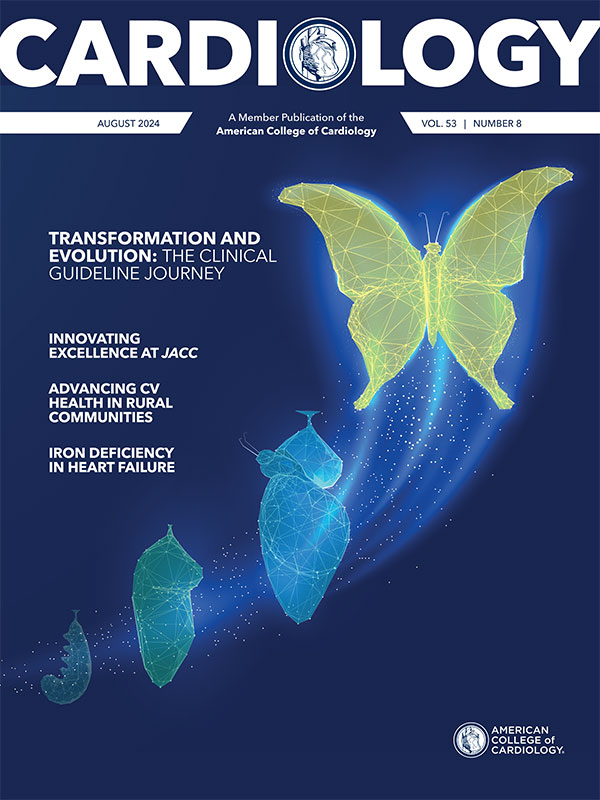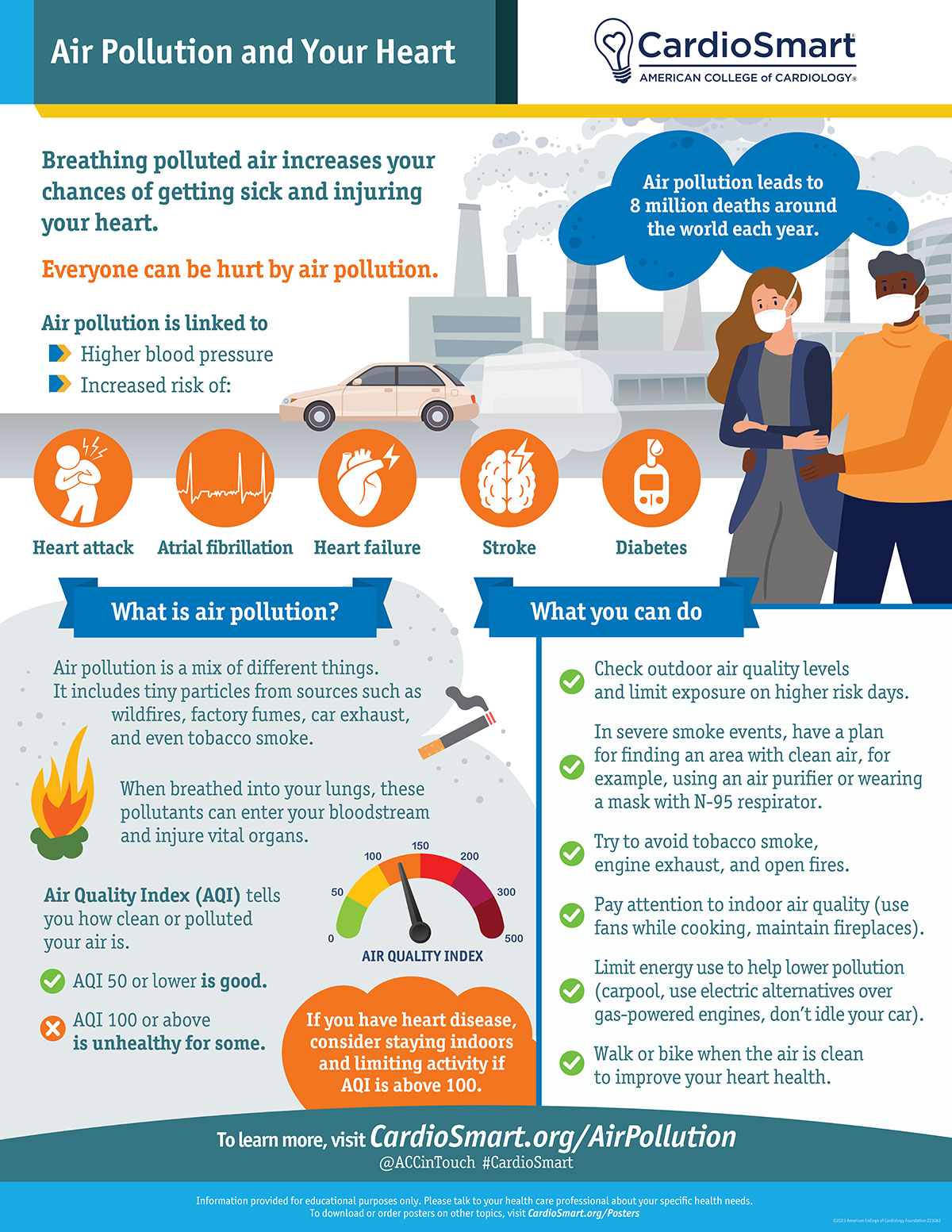Prioritizing Health | Rising Toll of Environmental Impacts on CV Health

Just a few short weeks into summer, after an active spring, we continue to see weather events that are more severe and greater in number, wreaking havoc on homes and communities, and at times taking lives. These events, along with air pollution, are taking an ever-increasing toll on the health of individuals and communities, including cardiovascular health and cancer.
Three recent reports help to quantify this toll and its drivers along with recommending strategies and policies to address it, together equipping clinicians to take action to educate patients and advocate for change.
"Comprehensive strategies to mitigate pollution and climate change are paramount to protect the environment and safeguard human health globally," say leading global experts as part of a two-part JACC Focus Seminar on pollution, climate change and cardiovascular disease.
The series focuses on the impacts of global warming, air pollution and exposure to wildfire smoke on cardiovascular health and highlights "lesser-known drivers of heart disease" including exposure to toxic chemicals and soil, noise and light pollution.
"Both epidemiologic evidence and mechanistic evidence link all these pollution forms to increased cardiovascular morbidity and mortality," write Mark R. Miller, PhD, Philip J. Landrigan, MD, MsC, and Manish Arora, PhD, et al. "In reviewing these topics, we hope to highlight the significance of environmental stresses to the global burden of disease and to mobilize the cardiovascular community to advocate for interventions to reduce pollution emissions and slow the progress of global warming."

Click here to read more and access this JACC Focus Seminar.
Click here to access the JACC Global Burden Hub for insights on the regional impact of pollution on heart disease.
Click here to download the WHF Report.
Click here to download this new infographic from CardioSmart to start conversations with patients about pollution and heart health.
The authors highlight the important role the medical community, including cardiologists and other clinicians, can play in providing practical advice about environmental risk to patients.
"Although global warming and air pollution are aligned in many respects, perhaps the single most critical factor linking them is that both are major public health emergencies," they write. "Reducing either stressor will likely have benefits on the other; however, a concerted effort … is critical to future human and planetary health."
Looking ahead, "the identification and management of pollution exposure in individual patients will be an area of increasing clinical relevance," they write. Additionally, they call on the cardiology community, including cardiovascular health foundations, to engage with local and public health bodies and to advocate for political change both in the U.S. and globally.
Of the 4.2 million global deaths attributed to ambient air pollution in 2019, nearly 70% were caused by cardiovascular conditions, notably ischemic heart disease and stroke, according to a new report by the World Heart Federation (WHF).
Similarly, the WHF found that of the 3.2 million deaths attributed to household air pollution, more than half were caused by cardiovascular disease. Moreover, globally, 22% of deaths from ischemic heart disease and 15% from stroke were attributable to air pollution in 2019.
The culprit? Most often PM2.5, particulate matter measuring <2.5 µg; in 2019 the mean global level was 31.7 µg/m3, far above the World Health Organization recommendation of ≤5 µg/m3. Climate change has exacerbated the issue, especially in low-income countries, where the toll on health is greater.
Once in the cardiovascular system, pollutants like PM2.5 can alter the rhythm of the heart, constrict or stiffen blood vessels, increase blood pressure and blood coagulation, decrease fibrinolysis, accelerate the development of a cardiovascular disease, or even trigger a cardiovascular event.
The WHF calls on the cardiology community to "advocate for the need to recognize air pollution as a major risk factor for cardiovascular health, engage with stakeholders, and help prioritize resources and political will to tackle this issue."
Air pollution is a shared risk factor for cardiovascular disease and cancer, not only increasing the risk of disease and mortality, but also increasing health disparities, according to a state-of-the-art review published in a JACC: CardioOncology focus issue on social and environmental determinants of health and health disparities. Click here to read more.
Clinical Topics: Cardiovascular Care Team
Keywords: Cardiology Magazine, ACC Publications, Public Health, Climate Change, Environmental Pollution, Heart Diseases, Global Burden of Disease

